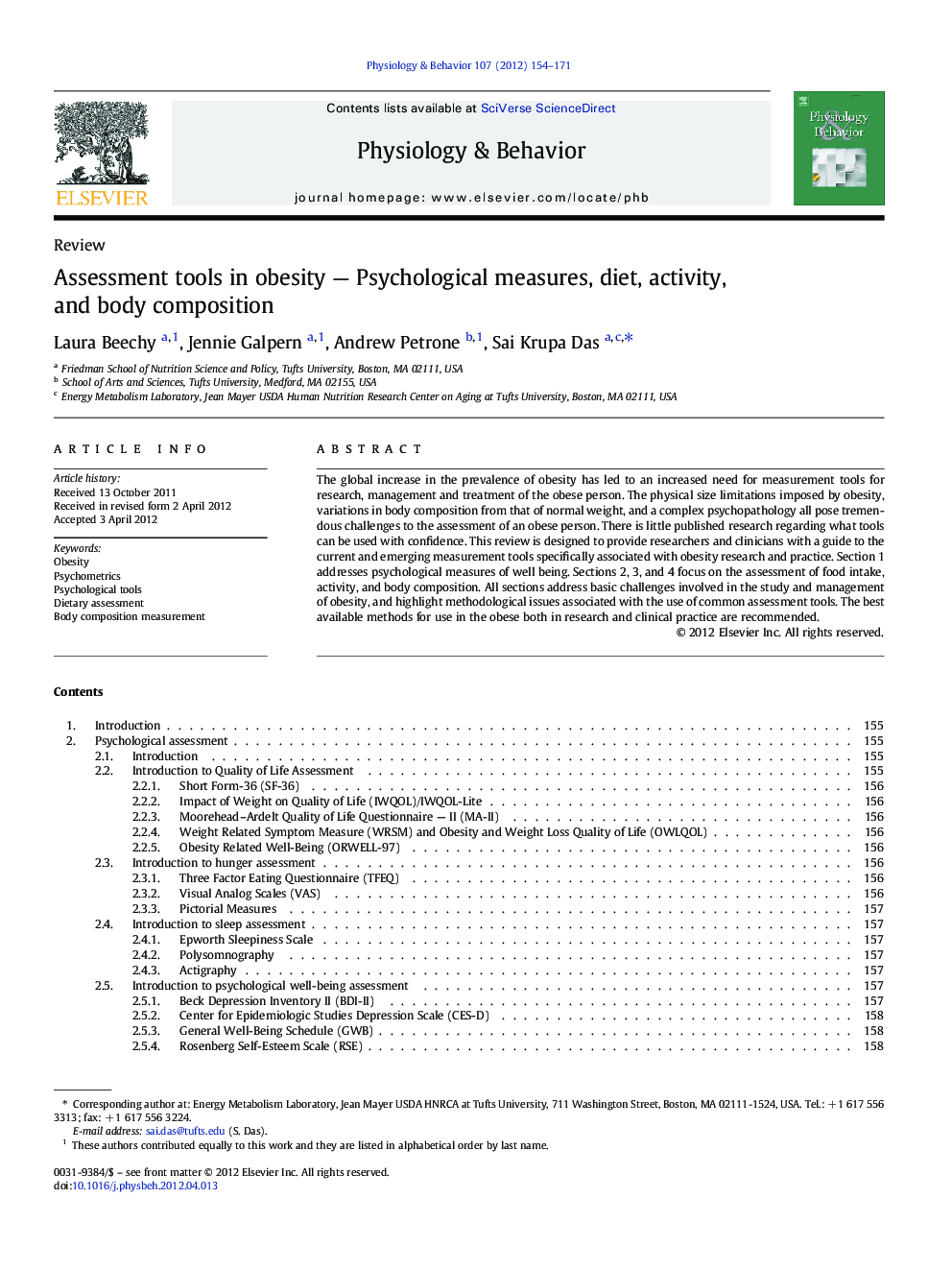| Article ID | Journal | Published Year | Pages | File Type |
|---|---|---|---|---|
| 2844460 | Physiology & Behavior | 2012 | 18 Pages |
The global increase in the prevalence of obesity has led to an increased need for measurement tools for research, management and treatment of the obese person. The physical size limitations imposed by obesity, variations in body composition from that of normal weight, and a complex psychopathology all pose tremendous challenges to the assessment of an obese person. There is little published research regarding what tools can be used with confidence. This review is designed to provide researchers and clinicians with a guide to the current and emerging measurement tools specifically associated with obesity research and practice. Section 1 addresses psychological measures of well being. Sections 2, 3, and 4 focus on the assessment of food intake, activity, and body composition. All sections address basic challenges involved in the study and management of obesity, and highlight methodological issues associated with the use of common assessment tools. The best available methods for use in the obese both in research and clinical practice are recommended.
► There is an increased need for appropriate assessment tools in obesity. ► Psychological assessment tools allow comparisons across studies and populations. ► Dietary intake and body composition assessments help improve policy and treatment. ► Tool validity, limitations and new assessment technology are discussed.
